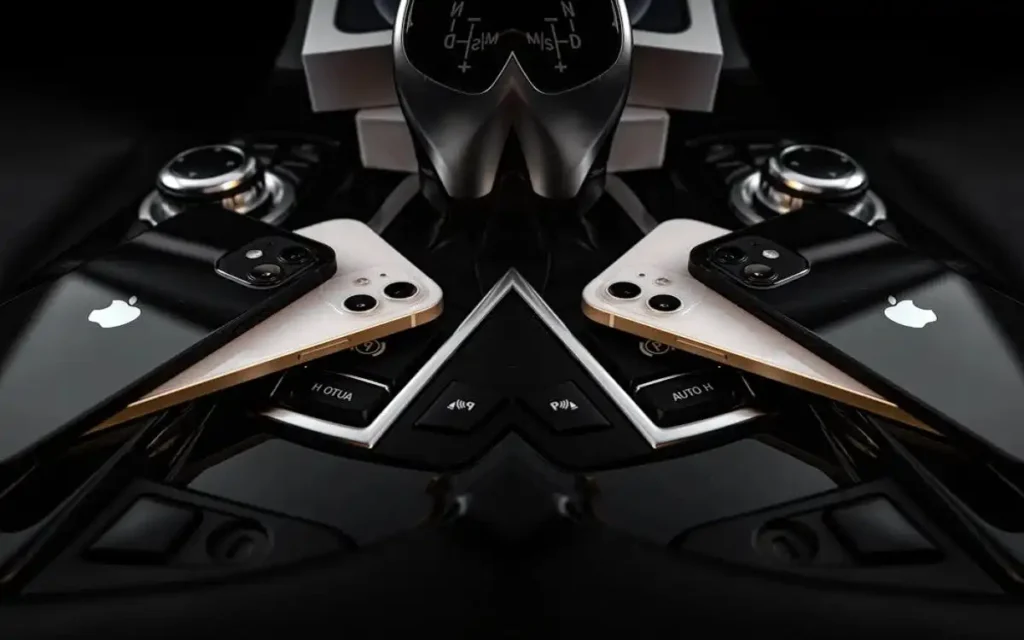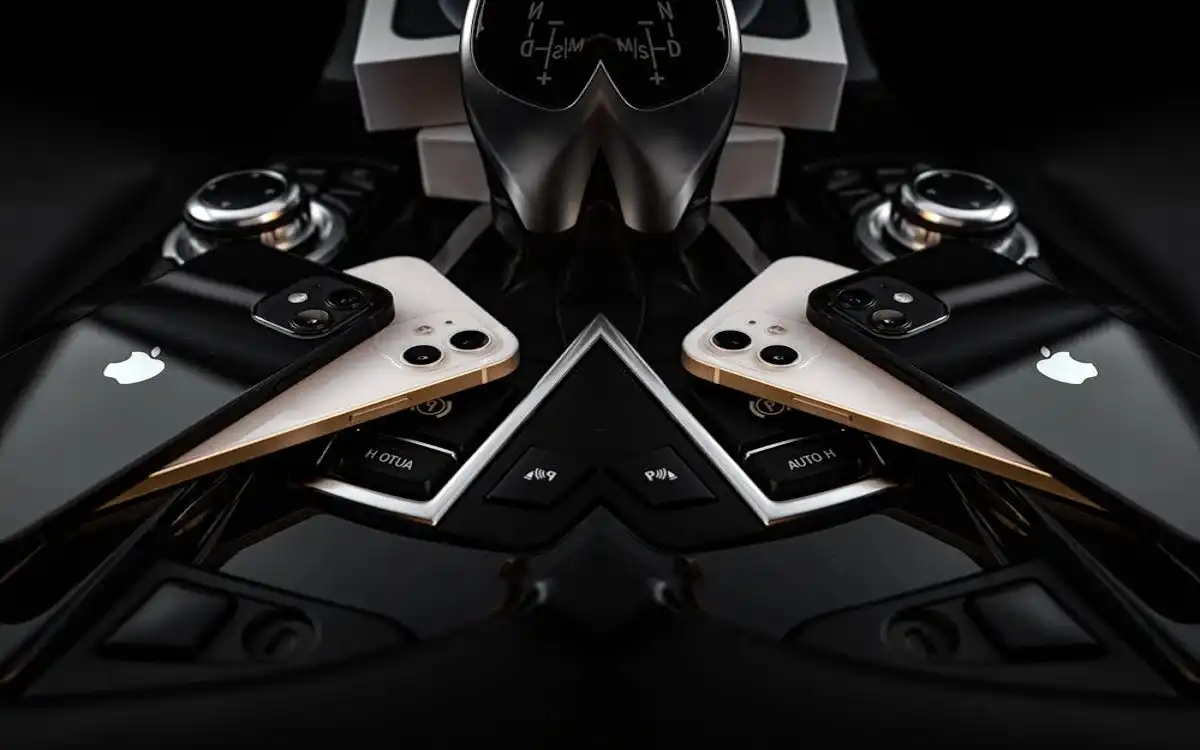The recent cancellation of Apple Self Driving Vehicle testing permit in California marks the end of a chapter in the company’s history. A chapter filled with ambition, challenges, and ultimately, a strategic pivot. The story of Project Titan. Apple’s ambitious forays into the world of autonomous electric vehicles, and explores the reasons behind its cancellation. The impact on the company’s future direction, and the broader implications for the tech and automotive industries.
Recent Released: How to Login GMGlobalConnect On iPhone or Mac
The Birth of a Titan: Apple’s Audacious Entry into the Automotive World
A Vision of Reinventing Transportation
In 2014, Apple quietly initiated Apple Self Driving Vehicle Project Titan, a secret endeavor aimed at revolutionizing the automotive industry. The project’s goal was nothing short of audacious: to develop a fully autonomous electric vehicle. It would redefine transportation in the same way the iPhone had transformed mobile communication. With its track record of disrupting industries and its deep pockets. Apple seemed well-positioned to make waves in the automotive sector.
Investing in the Future
Apple’s commitment to Project Titan was evident in its financial backing. The company poured approximately $1 billion annually into the project, amounting to a staggering $10 billion over its lifetime. This level of investment underscored Apple’s serious intentions to become a major player in the autonomous vehicle market.
The Challenges: Navigating Uncharted Waters

Technical Hurdles and the Complexity of Autonomy
As Project Titan progressed, it became increasingly clear that developing a fully autonomous vehicle. It was a far more complex undertaking than initially anticipated. The technical challenges of creating advanced Apple Self Driving Vehicle capabilities. That met Apple’s exacting standards proved to be a significant obstacle.
Leadership Turnover and Strategic Shifts
The project was plagued by frequent changes in leadership and direction. Key figures, including Doug Field, departed for other companies, leading to a lack of continuity and focus. These leadership transitions resulted in constant shifts in priorities, causing confusion and frustration among team members.
Market Realities and Competitive Pressures
As Project Titan evolved, so did the automotive market. The electric vehicle sector faced challenges such as high prices and inadequate charging infrastructure, which slowed sales growth. Additionally, established players like Tesla and traditional automakers were making significant strides in EV and autonomous technology, intensifying competition.
The Decision to Pull the Plug
Reassessing Viability and Profitability
In 2024, Apple made the difficult decision to cancel Apple Self Driving Vehicle Project Titan. The company concluded that it could not achieve acceptable profit margins in the highly competitive automotive landscape. This decision was influenced by market conditions, including rivals reducing prices and the overall slowdown in the electric vehicle market.
Shifting Focus to AI and Other Technologies
With the cancellation of Project Titan, Apple announced a strategic pivot towards artificial intelligence (AI) and other emerging technologies. This shift reflects a broader trend in the tech industry, where companies are reassessing their positions in rapidly evolving markets.
Impact and Implications
Workforce Adjustments and Resource Reallocation
The cancellation of Project Titan led to significant changes within Apple. The company laid off 614 employees directly involved in the project, marking its first major layoffs since the COVID-19 pandemic. However, many of the remaining 2,000 team members were expected to be reassigned to other initiatives. Particularly in the field of generative AI.
Stock Market Reaction and Investor Sentiment
Interestingly, the market responded positively to the news of Project Titan’s cancellation. Apple’s stock saw an uptick, suggesting that investors viewed the decision. As a prudent move to refocus resources on more promising areas of innovation.
Lessons for the Tech and Automotive Industries
Apple’s experience with Project Titan offers valuable lessons for both tech companies considering entry into the automotive sector. And for established automakers navigating the shift towards electric and autonomous vehicles. It highlights the immense challenges involved in developing innovative automotive technology. And the importance of maintaining a clear strategic vision in long-term projects.
The Road Ahead: Apple’s Future in AI and Beyond

Doubling Down on Artificial Intelligence
With the resources freed up from Project Titan, Apple Self Driving Vehicle is poised to make significant strides in the field of AI. The company aims to leverage its technological expertise to develop innovative AI-driven features for its existing product ecosystem. And potentially create new offerings that harness the power of machine learning and generative technologies.
Exploring New Frontiers: Home Robotics and Beyond
Reports suggest that Apple is not abandoning hardware innovation entirely. The company is said to be exploring new frontiers in technology, including potential developments in home robotics. This indicates that Apple continues to seek out opportunities to create transformative products, albeit in different sectors than originally planned with Project Titan.
The Competitive Landscape: Who’s Still in the Race?
While Apple may have exited the autonomous vehicle arena, numerous companies continue to push forward in this space. Here’s a look at some of the key players still actively developing autonomous electric vehicles:
| Company | Focus Area | Key Developments |
| Waymo | Autonomous taxis and delivery | Operated Waymo One service in Phoenix; driven over 20 million autonomous miles |
| Tesla | Electric vehicles with advanced autonomy | Developing full self-driving capabilities; unveiled Cybercab robotaxi concept |
| Cruise | Self-driving ride-hailing | Received permits for driverless services in San Francisco |
| Baidu | Autonomous vehicle technology | Operating Apollo Go service; testing fully autonomous vehicles in Beijing |
| NIO | Electric vehicles with semi-autonomous features | Developing NIO Pilot system for advanced driver assistance |
| Ford | Electrification and autonomy | Planning to release self-driving vehicles for ride-sharing by 2025 |
| BMW | Integrating autonomy into luxury vehicles | Aiming for Level 3 autonomous capabilities by 2025 |
| Zoox | Purpose-built autonomous robotaxis | Developed vehicle without manual controls; conducting public road tests |
| Motional | Autonomous ride-hailing | Operating robotaxi service in Las Vegas; partnering with Lyft and Uber |
| Pony.ai | Self-driving solutions | Expanding globally; joint venture with Toyota for robotaxi deployment |
This table illustrates the diverse approaches and focus areas of companies still actively pursuing autonomous electric vehicle technology. Each of these players brings unique strengths and strategies to the table, contributing to the ongoing evolution of the automotive and transportation industries.
At Last The Lessons from a Decade-Long Dream
The story of Apple Self Driving Vehicle Project Titan serves as a compelling case study in innovation, ambition, and the realities of entering a new and complex industry. While the project ultimately did not result in an Apple-branded vehicle on the roads, it undoubtedly contributed valuable insights and technologies that may shape the company’s future endeavors.
The cancellation of Apple Self Driving Vehicle Project Titan reminds us that even the most resource-rich and innovative companies can face insurmountable challenges when venturing into unfamiliar territories. It highlights the importance of adaptability in the face of changing market conditions and the need for clear, consistent strategic direction in long-term, high-stakes projects.
As Apple redirects its focus towards AI and other emerging technologies, the lessons learned from Project Titan will likely inform its approach to future innovations. The company’s ability to pivot and reallocate resources demonstrates a commitment to staying at the forefront of technological advancement, even if it means abandoning a decade-long dream.
For the broader tech and automotive industries, Apple’s experience with Project Titan serves as both a cautionary tale and an inspiration. It underscores the complexity of developing autonomous vehicles while also showcasing the potential for cross-industry innovation. As other companies continue to push the boundaries of what’s possible in transportation, they would do well to heed the lessons from Apple’s ambitious journey.
In the end, the story of Apple Self Driving Vehicle Project Titan is not one of failure, but of evolution. It represents a chapter in Apple’s history that, while now closed, has undoubtedly shaped the company’s trajectory and contributed to the ongoing narrative of technological progress. As we look to the future, it’s clear that the dream of revolutionizing transportation lives on—not just in the efforts of traditional automakers and tech giants, but in the collective imagination of innovators worldwide.






